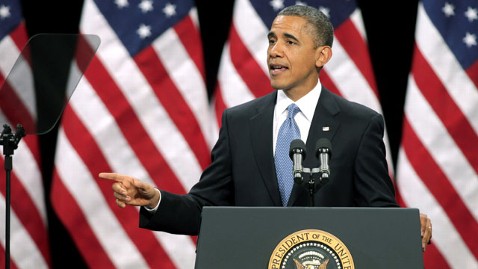Fact or fiction? Sex burns a lot of calories. Snacking or skipping breakfast is bad. School gym classes make a big difference in kids' weight.
All are myths or at least presumptions that may not be true, say researchers who reviewed the science behind some widely held obesity beliefs and found it lacking.
Their report in Thursday's New England Journal of Medicine says dogma and fallacies are detracting from real solutions to the nation's weight problems.
"The evidence is what matters," and many feel-good ideas repeated by well-meaning health experts just don't have it, said the lead author, David Allison, a biostatistician at the University of Alabama at Birmingham.
Independent researchers say the authors have some valid points. But many of the report's authors also have deep financial ties to food, beverage and weight-loss product makers — the disclosures take up half a page of fine print in the journal.
"It raises questions about what the purpose of this paper is" and whether it's aimed at promoting drugs, meal replacement products and bariatric surgery as solutions, said Marion Nestle, a New York University professor of nutrition and food studies.
"The big issues in weight loss are how you change the food environment in order for people to make healthy choices," such as limits on soda sizes and marketing junk food to children, she said. Some of the myths they cite are "straw men" issues, she said.
But some are pretty interesting.
Sex, for instance. Not that people do it to try to lose weight, but claims that it burns 100 to 300 calories are common, Allison said. Yet the only study that scientifically measured the energy output found that sex lasted six minutes on average — "disappointing, isn't it?" — and burned a mere 21 calories, about as much as walking, he said.
That's for a man. The study was done in 1984 and didn't measure the women's experience.
Among the other myths or assumptions the authors cite, based on their review of the most rigorous studies on each topic:
—Small changes in diet or exercise lead to large, long-term weight changes. Fact: The body adapts to changes, so small steps to cut calories don't have the same effect over time, studies suggest. At least one outside expert agrees with the authors that the "small changes" concept is based on an "oversimplified" 3,500-calorie rule, that adding or cutting that many calories alters weight by one pound.
—School gym classes have a big impact on kids' weight. Fact: Classes typically are not long, often or intense enough to make much difference.
—Losing a lot of weight quickly is worse than losing a little slowly over the long term. Fact: Although many dieters regain weight, those who lose a lot to start with often end up at a lower weight than people who drop more modest amounts.
—Snacking leads to weight gain. Fact: No high quality studies support that, the authors say.
—Regularly eating breakfast helps prevent obesity. Fact: Two studies found no effect on weight and one suggested that the effect depended on whether people were used to skipping breakfast or not.
—Setting overly ambitious goals leads to frustration and less weight loss. Fact: Some studies suggest people do better with high goals.
Some things may not have the strongest evidence for preventing obesity but are good for other reasons, such as breastfeeding and eating plenty of fruits and vegetables, the authors write. And exercise helps prevent a host of health problems regardless of whether it helps a person shed weight.
"I agree with most of the points" except the authors' conclusions that meal replacement products and diet drugs work for battling obesity, said Dr. David Ludwig, a prominent obesity research with Boston Children's Hospital who has no industry ties. Most weight-loss drugs sold over the last century had to be recalled because of serious side effects, so "there's much more evidence of failure than success," he said.
___
Online:
Obesity info: http://www.cdc.gov/obesity/data/trends.html
New England Journal: http://www.nejm.org
___
Marilynn Marchione can be followed at http://twitter.com/MMarchioneAP










